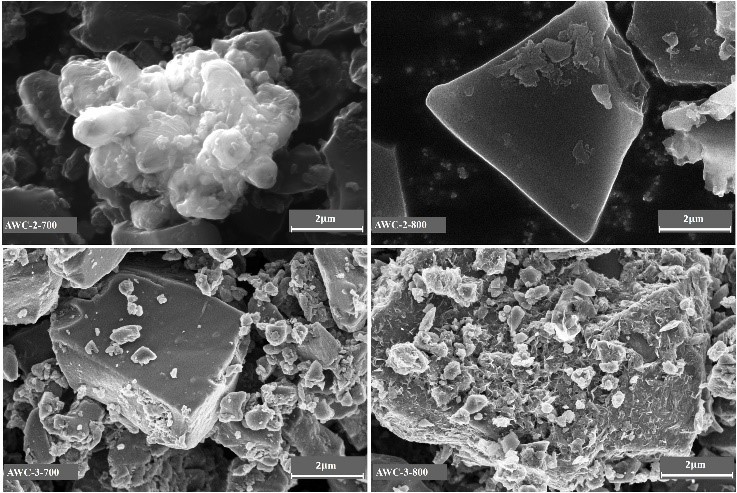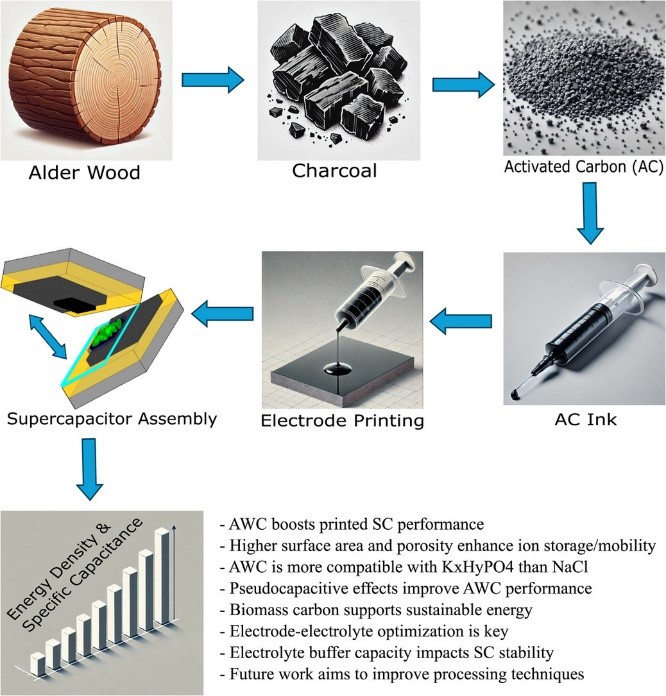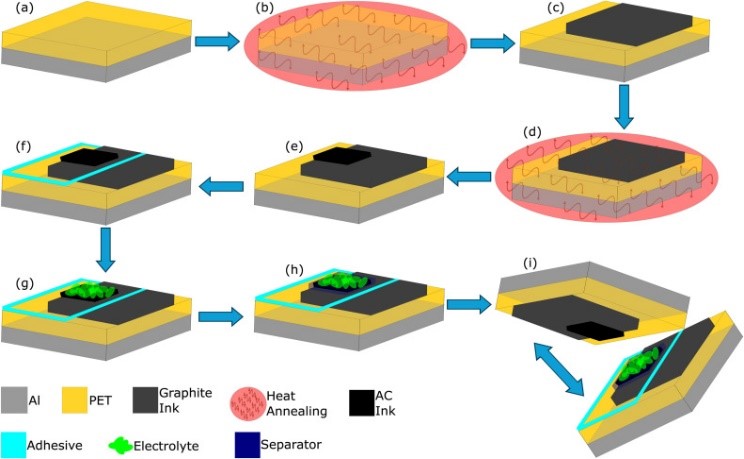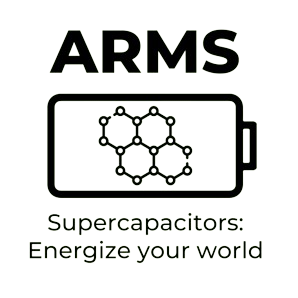First publication from the ARMS project: sustainable wood carbon for next-generation energy storage

SEM images of AWC samples
The ARMS project's first scientific publication, “Enhancing Specific Capacitance and Energy Density in Printed Supercapacitors: The Role of Activated Wood Carbon and Electrolyte Dynamics,” was published in the open-access journal Carbon Trends. The publication explores the potential of Activated Wood Carbon (AWC) – a sustainable and innovative material – for use in printed supercapacitors. The team of researchers from Tampere University (Finland), the Latvian State Institute of Wood Chemistry (Latvia), InnoCell ApS (Denmark), and the Institute of Solid State Physics, University of Latvia (Latvia) investigated the impact of AWC's unique structural properties on the performance of these energy storage devices. They also examined how different electrolytes influence the overall energy storage capabilities.
The study involved comprehensive analysis using techniques such as sorptometry, Raman spectroscopy, X-ray diffraction, and electrochemical assessments. These analyses provided crucial insights into the relationship between AWC's structure and its electrochemical behavior. The researchers compared the performance of supercapacitors using AWC to those using a commercially available benchmark material.
Remarkably, the results demonstrated a significant enhancement in both specific capacitance and energy density when using AWC. In fact, the supercapacitors using AWC showed improvements of up to 93% in specific capacitance and 90% in energy density compared to the benchmark material at specific operating voltages. This significant performance improvement is attributed to AWC's superior surface area and porous structure, which offers abundant sites for ion storage and facilitates efficient ion transport.
Furthermore, the choice of electrolyte played a critical role in determining the overall performance. The study compared two different aqueous electrolytes—demonstrating that the KxHyPO4 electrolyte yielded superior results compared to NaCl. This difference underscores the importance of carefully selecting electrolytes to optimize the performance of supercapacitors.
This research showcases the promise of AWC as a sustainable and high-performing electrode material for printed supercapacitors. The findings represent a significant step towards developing environmentally friendly and efficient energy storage solutions for a more sustainable future.
Read the full paper here.

Graphical abstract of the publication

Supercapacitor fabrication steps
